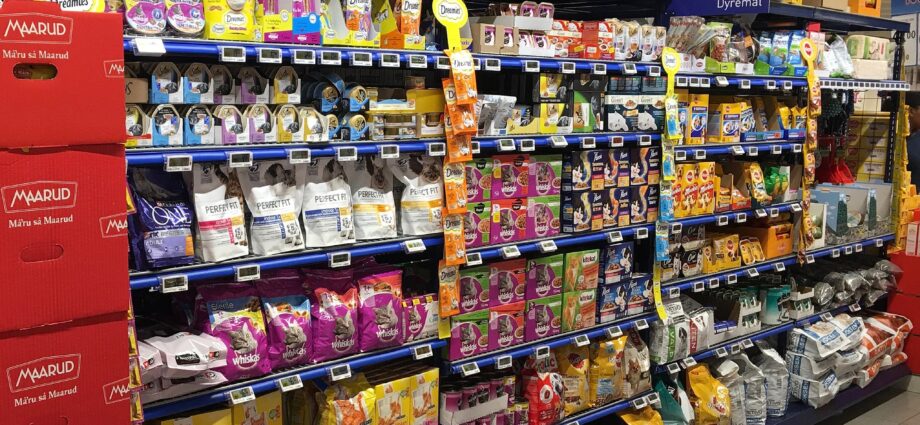
Pet food at a supermarket. Photo via Wikimedia Commons. CC BY-SA 4.0
by Rina Hoffman
July 19, 2024
The United Kingdom has become the first European nation to greenlight lab-grown meat for commercial use, beginning with pet food — specifically, Meatly‘s cultivated chicken. This milestone approval by the Animal and Plant Health Agency and the Department for Environment, Food and Rural Affairs sets a precedent in the region, paving the way for innovative solutions to longstanding challenges in the food industry.
“The UK is a world leader in developing cultivated meat and the approval of a cultivated pet food is an important milestone. It underscores the potential for new innovation to help reduce the negative impacts of intensive animal agriculture,” said Linus Pardoe, UK policy manager at the Good Food Institute Europe.
The approval comes on the heels of extensive research and development by Meatly, a cultivated meat tech company. Their cultivated chicken is created by extracting a small sample from a chicken egg and cultivating it with essential vitamins and amino acids in a controlled laboratory environment. The cells are then grown in a fermentation-like process, resulting in a paste that is nutritionally identical to conventionally farmed meat.
Meatly, which has raised £3.5m so far, has now received government approval to handle cultivated chicken. Initially targeting the pet food market, the company plans to introduce their lab-grown meat products to consumers this year. Their strategy includes scaling production to industrial levels within the next three years, with cost reduction measures anticipated through blending the meat with vegetables, akin to current high-quality pet food practices.
According to a University of Winchester study, 50% of pet owners said they would feed their pets cultivated meat, with 32% saying they would eat cultivated meat themselves.
While the UK’s focus initially targets pet food, there is ongoing assessment by the Food Standards Agency for human consumption applications. This aligns with global trends where countries like Singapore and Israel have already approved cultivated meat for human consumption, contrasting with regulatory challenges in some US states like Florida and Alabama, which banned cultivated meat.
“The first UK applications for cultivated meat produced for humans remain under assessment with the Food Standards Agency. If we’re to realise the full potential benefits of cultivated meat – from enhancing food security to supporting the expansion of regenerative farming – the government must invest in the research and infrastructure needed to make it delicious, affordable and accessible for people across the UK,” Pardoe said.
As this industry continues to evolve, the spotlight remains on how cultivated meat can contribute to food security, environmental sustainability, and the ethical treatment of animals, marking a significant step forward in the global movement towards more sustainable food choices.
Subscribe to our newsletter.
This article was originally published on IMPAKTER. Read the original article.


